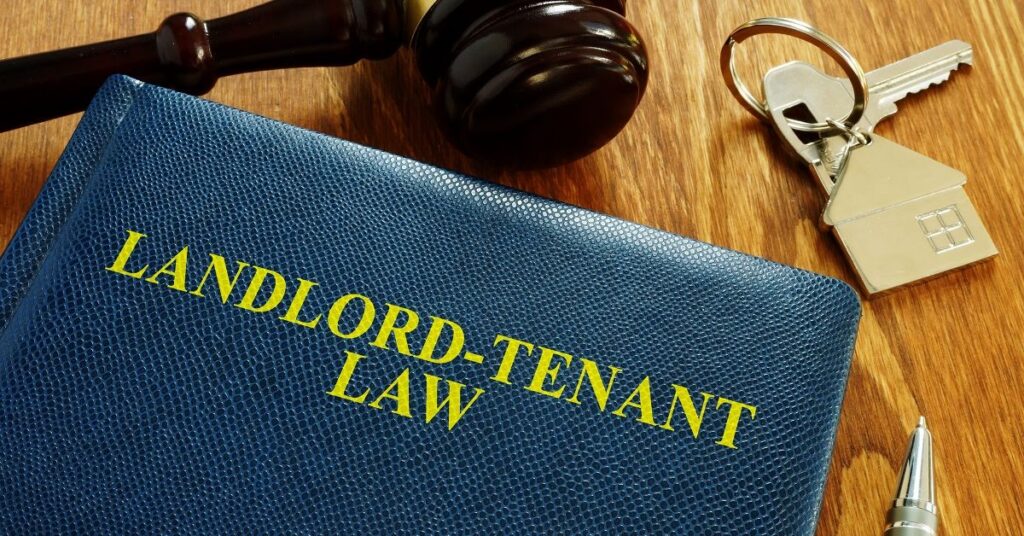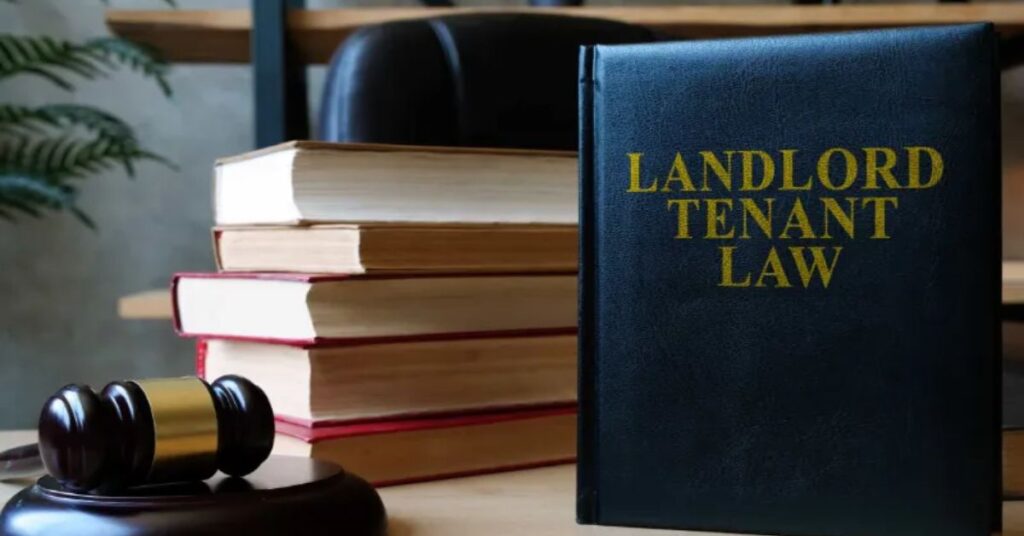Are you a tenant facing the bitter chill of winter without proper heating in your rental property? The struggle to stay warm during the colder months can be daunting, especially when your landlord fails to provide essential heat. In this guide, we’ll delve into the critical question: How long can a landlord leave you without heat? Join us as we explore your rights, practical solutions, and steps to navigate this challenging situation effectively.
As winter sets in and temperatures drop, the importance of adequate heating in rental properties becomes paramount. Yet, many tenants find themselves grappling with the discomfort and health risks of inadequate heating due to landlord negligence.
In this discussion, we’ll address the pressing issue: How long can a landlord leave you without heat? Join us as we unravel the legalities, tenant rights, and strategies for surviving the chill while ensuring a habitable living environment.
Understanding Your Tenant Rights

Understanding your tenant rights is crucial for ensuring fair treatment in your rental property. These rights protect you from landlord abuse and provide guidelines for resolving disputes.
By familiarizing yourself with tenant laws and regulations, you empower yourself to advocate for your rights effectively.
From minimum housing standards to lease agreements, knowing your tenant rights is essential for maintaining a safe and comfortable living environment.
Whether it’s addressing issues with heating, repairs, or privacy, being informed about your rights as a tenant is key to navigating the rental process with confidence.Familiarizing Yourself with Local Tenant Laws and Regulations
Read As: RENT CALCULATOR HOURLY WAGE: RENTING MADE EASY
Understanding Your Rights Regarding Heating Standards
Understanding your rights regarding heating standards is essential for ensuring a comfortable and safe living environment in your rental property. These rights dictate the minimum acceptable temperatures that landlords must maintain during colder months.
By familiarizing yourself with heating regulations, you can advocate for prompt resolution of heating-related issues and ensure that your landlord fulfills their obligations. From minimum temperature requirements to responsive maintenance, knowing your rights empowers you to assert your needs and uphold the standards of habitability in your home.
Exploring Available Remedies for Tenant Rights Violations
Exploring available remedies for tenant rights violations is crucial for safeguarding your rights as a renter. When faced with violations such as inadequate heating, improper maintenance, or breaches of privacy, understanding your options is key to seeking resolution.
Remedies may include requesting repairs, withholding rent, filing complaints with local housing authorities, or even pursuing legal action if necessary. By exploring these avenues, tenants can hold landlords accountable for their obligations and ensure a fair and habitable living environment.
Effective Communication with Your Landlord

Effective communication with your landlord is essential for addressing concerns and maintaining a positive landlord-tenant relationship. Clear and respectful communication can help resolve issues promptly and prevent misunderstandings.
Start by clearly articulating your concerns in writing, providing specific details and any relevant documentation. Be polite and professional in your communication, expressing your needs and expectations calmly and assertively.
Keep records of all communication for reference in case of disputes. Additionally, be open to compromise and willing to work together to find mutually beneficial solutions. By fostering open communication, you can build trust and ensure a harmonious living environment for both parties.
Opening a Dialogue About Heating Concerns with Your Landlord
Opening a dialogue about heating concerns with your landlord is crucial for addressing issues and ensuring a comfortable living environment.
Start by reaching out to your landlord in a polite and respectful manner, expressing your concerns about the heating situation in your rental property. Clearly describe the problem, providing specific details such as the areas affected and any previous attempts to resolve the issue. Offer suggestions for potential solutions or ask if they have any plans to address the problem.
It’s important to maintain open communication and be willing to collaborate to find a resolution. By initiating this dialogue, you can work together with your landlord to resolve the heating concerns and ensure a warm and comfortable home.
Keeping Detailed Records of All Correspondence and Heat Requests
Keeping detailed records of all correspondence and heat requests is essential for documenting the heating issues you’re experiencing and your efforts to address them with your landlord.
Start by creating a dedicated folder or digital file to organize all communication related to the heating problem. Include dates, times, and methods of communication (such as emails, phone calls, or letters) with your landlord. Be sure to document any responses or actions taken by your landlord, as well as any follow-up communication from your end.
Additionally, keep records of any maintenance requests or work orders submitted regarding the heating system. These detailed records will serve as valuable evidence in case further action, such as legal recourse, becomes necessary.
Seeking Legal Guidance if Landlord Communication is Inadequate
If communication with your landlord regarding heating issues proves inadequate, seeking legal guidance is a prudent step to protect your rights as a tenant.
Start by consulting with a qualified attorney specializing in landlord-tenant law. They can provide expert advice on your legal options and help you understand your rights under local housing regulations. Be prepared to provide documentation of your communication with your landlord, including records of heat requests and any responses received.
Your attorney can advise you on the best course of action to address the situation, whether it involves sending official notices, negotiating with your landlord, or pursuing legal action. By seeking legal guidance, you can ensure that your rights are upheld and take appropriate steps to resolve the heating issues effectively.
Implementing Temporary Heating Solutions
Implementing temporary heating solutions is crucial when facing heating issues in your rental property. Start by using portable heaters or electric blankets to provide immediate warmth in your living space. Ensure these devices are used safely, following manufacturer instructions and keeping them away from flammable materials.
Additionally, consider insulating your home by sealing gaps around windows and doors to retain heat. Weatherstripping and insulation materials can also be used effectively. If necessary, seek community resources for temporary shelter or assistance during extremely cold periods.
These temporary measures will help ensure your comfort and safety until the heating issue is resolved. Utilizing Safe Heating Alternatives such as Space Heaters or Electric Blankets
Enhancing Insulation to Maintain Indoor Heat Levels
Enhancing insulation is a proactive measure to maintain indoor heat levels and improve energy efficiency in your rental property.
Start by identifying areas where heat loss occurs, such as gaps around windows and doors, and seal them with weatherstripping or caulking. Additionally, consider adding insulation to walls, floors, and attics to prevent heat from escaping.
Insulated curtains or blinds can also help retain heat by reducing heat transfer through windows. By enhancing insulation throughout your home, you can create a more comfortable living environment and reduce heating costs during colder months.
Exploring Community Resources for Emergency Shelter Assistance
Exploring community resources for emergency shelter assistance is essential if you encounter heating issues in your rental property.
Contact local shelters, community centers, or social service agencies to inquire about available programs or services for individuals facing housing emergencies.
These resources may offer temporary shelter, emergency housing vouchers, or assistance with utility bills during extreme weather conditions.
Additionally, consider reaching out to faith-based organizations or non-profit groups in your area for support. By exploring community resources, you can ensure that you have a safe and warm place to stay during challenging times.
Resorting to Legal Channels for Resolution
Resorting to legal channels for resolution is a necessary step if your landlord fails to address heating issues in your rental property.
Begin by familiarizing yourself with tenant rights and relevant housing laws in your area. If communication with your landlord proves ineffective, consider contacting local housing authorities or tenant advocacy organizations for guidance.
They can provide information on your legal options and may assist you in filing a formal complaint or pursuing legal action against your landlord. Additionally, consulting with a qualified attorney specializing in landlord-tenant law can provide valuable insight and representation throughout the legal process.
By resorting to legal channels, you can assert your rights as a tenant and seek the resolution you deserve.
Reaching Out to Local Housing Authorities or Tenant Advocacy Groups
Reaching out to local housing authorities or tenant advocacy groups is a proactive step if you’re experiencing heating issues in your rental property. These organizations specialize in tenant rights and can provide valuable guidance and support.
Contact them to report the heating problem and inquire about your rights as a tenant. They can advise you on the appropriate steps to take, such as filing a complaint or seeking mediation with your landlord. Additionally, they may offer resources or referrals to legal assistance if needed.
By reaching out to housing authorities or advocacy groups, you can ensure that your concerns are addressed and that you receive the assistance you require.
Initiating Formal Complaint Procedures for Heating Issues

Initiating formal complaint procedures for heating issues is crucial if your landlord has failed to address the problem adequately. Start by documenting all instances of communication with your landlord regarding the heating issue, including dates, times, and methods of contact.
If informal communication hasn’t resolved the problem, consider filing a formal complaint with relevant authorities, such as local housing agencies or tenant advocacy organizations.
Provide detailed information about the heating problem, including any attempts made to resolve it and the impact it has had on your living conditions.
Be prepared to follow any specific procedures outlined by the authorities and provide any additional documentation or evidence requested. By initiating formal complaint procedures, you can escalate the issue and seek the intervention needed to ensure that your rights as a tenant are upheld.
Navigating Legal Processes and Potential Outcomes
Navigating legal processes and potential outcomes is essential when addressing heating issues with your landlord. Begin by familiarizing yourself with relevant tenant rights laws and regulations in your jurisdiction.
If informal communication with your landlord has failed to resolve the problem, consider seeking legal advice from a qualified attorney specializing in landlord-tenant law.
They can provide guidance on the legal options available to you, such as filing a formal complaint, pursuing mediation, or taking legal action.
During this process, be prepared to gather evidence to support your case, including documentation of communication with your landlord, records of heating issues, and any related expenses or damages incurred.
Potential outcomes may vary depending on the specifics of your case and applicable laws. They could include financial compensation for damages, mandated repairs or improvements to the heating system, rent abatement, or termination of the lease agreement.
By navigating the legal process diligently and seeking appropriate remedies, you can assert your rights as a tenant and work towards a satisfactory resolution to the heating issue.
Seeking Compensation and Redress
Seeking compensation and redress for heating issues requires a strategic approach to assert your rights as a tenant effectively. Begin by documenting the extent of the heating problem, including any communication with your landlord, maintenance requests, and the impact on your living conditions. This evidence will be crucial in demonstrating the severity of the issue and the damages incurred.
Once you have gathered sufficient evidence, consider your options for seeking compensation. This may involve requesting rent abatement for the period during which the heating was inadequate, reimbursing expenses related to temporary heating solutions or additional utility costs, or pursuing legal action for breach of contract or violation of tenant rights.
When seeking compensation, it’s essential to communicate your grievances clearly and professionally to your landlord. Provide them with a detailed breakdown of the damages incurred and a reasonable request for compensation. If your landlord is unresponsive or unwilling to negotiate, you may need to escalate the matter through legal channels.
Consulting with a qualified attorney specializing in landlord-tenant law can provide valuable guidance on the best course of action and help you navigate the legal process effectively. With their assistance, you can pursue fair compensation and redress for the heating issues you have experienced, ensuring that your rights as a tenant are upheld.
Requesting Rent Reductions or Compensation for Incurred Expenses
When faced with heating issues in your rental property, it’s essential to understand your rights and explore avenues for seeking compensation or rent reductions for any expenses incurred.
Begin by documenting the heating problems, including dates, temperatures, and any communications with your landlord regarding the issue.
Once you have gathered evidence, consider reaching out to your landlord to discuss the situation.
Clearly outline the impact of the heating issues on your living conditions and any expenses you have incurred as a result, such as higher utility bills or the cost of temporary heating solutions.
Request a rent reduction or compensation for these expenses, emphasizing that you are seeking fair and reasonable resolution.
When communicating with your landlord, remain polite and professional, but assertive in advocating for your rights as a tenant. Provide them with evidence to support your request and be prepared to negotiate a solution that works for both parties.
If your landlord is unresponsive or unwilling to provide compensation, you may need to explore other options, such as filing a formal complaint with local housing authorities or seeking legal advice. A qualified attorney specializing in landlord-tenant law can provide guidance on your rights and options for seeking compensation through legal channels.
By taking proactive steps and advocating for yourself, you can work towards obtaining fair compensation or rent reductions for the heating issues you have experienced, ensuring that your rights as a tenant are upheld.
Exploring Legal Recourse Options, including Small Claims Court
When faced with unresolved heating issues in your rental property, exploring legal recourse options, including small claims court, can be a proactive step towards resolution. In such situations, tenants have the right to seek legal remedies to enforce their rights and hold landlords accountable.
Small claims court offers a streamlined process for resolving disputes involving relatively small amounts of money, making it accessible and efficient for tenants seeking compensation or resolution.
By exploring legal recourse options, tenants can assert their rights, seek compensation for damages or expenses incurred, and work towards ensuring a habitable living environment.
Collecting Evidence and Documentation to Support Claims
Collecting evidence and documentation is essential when pursuing claims related to heating issues in rental properties. This documentation serves as crucial evidence to support tenants’ claims and strengthen their case in legal proceedings or negotiations with landlords.
It includes records of communication with the landlord, such as emails, letters, or text messages regarding heating problems, maintenance requests, and responses received. Additionally, tenants should document the duration and severity of heating issues, including temperature readings, photographs, or videos if possible.
Keeping receipts for any expenses incurred due to the lack of heat, such as purchasing space heaters or additional utility costs, is also important. By meticulously collecting and organizing evidence, tenants can effectively demonstrate the extent of the problem and the impact it has had on their living conditions, thereby increasing their chances of achieving a favorable outcome.
Frequently asked question
How long can a landlord legally leave tenants without heat?
The duration varies by jurisdiction, but landlords must provide consistent heating as per local regulations.
What should tenants do if their landlord fails to provide heat?
Notify the landlord promptly and document the issue; seek assistance from housing authorities or tenant advocacy groups if needed.
Can tenants withhold rent if they don’t have heat?
In some jurisdictions, tenants can withhold rent or take legal action for lack of essential services, but local laws should be consulted first.
How can tenants stay warm if their landlord doesn’t fix the heating problem?
Utilize temporary heating solutions like space heaters, electric blankets, or stay elsewhere until the issue is resolved.
What legal recourse do tenants have for prolonged heating issues?
They can file complaints with housing authorities, pursue legal action in small claims court, or seek compensation for expenses.
Can tenants break their lease if the heating problem persists?
Depending on lease terms and local laws, they may have grounds to terminate the lease early, but they should review specifics before taking action.
Final thought
In conclusion, understanding your rights as a tenant regarding heating standards is crucial for ensuring a safe and comfortable living environment. While landlords are obligated to provide consistent heat, tenants must be proactive in addressing any issues that arise.
By keeping records, exploring legal recourse options, and seeking assistance from local housing authorities or tenant advocacy groups, tenants can effectively navigate heating-related challenges and protect their well-being during the colder months. Remember, staying informed and advocating for your rights is essential for surviving the chill and maintaining a habitable living space.

James, with 5 years of business experience, brings expertise to our website. His profile reflects a commitment to excellence and innovation in his field.







